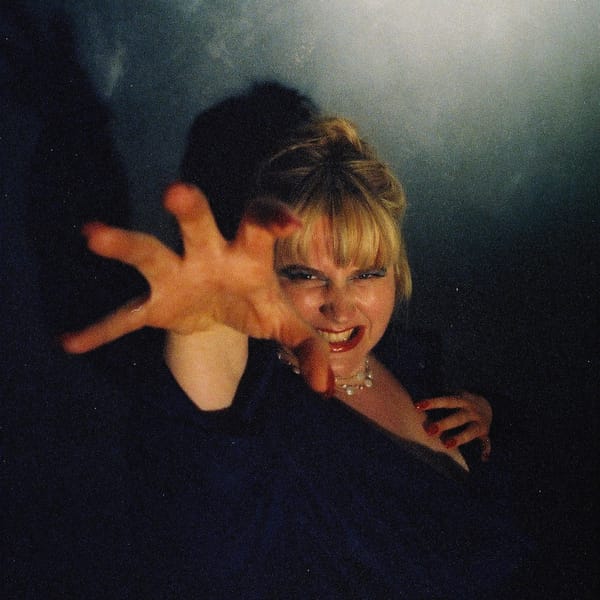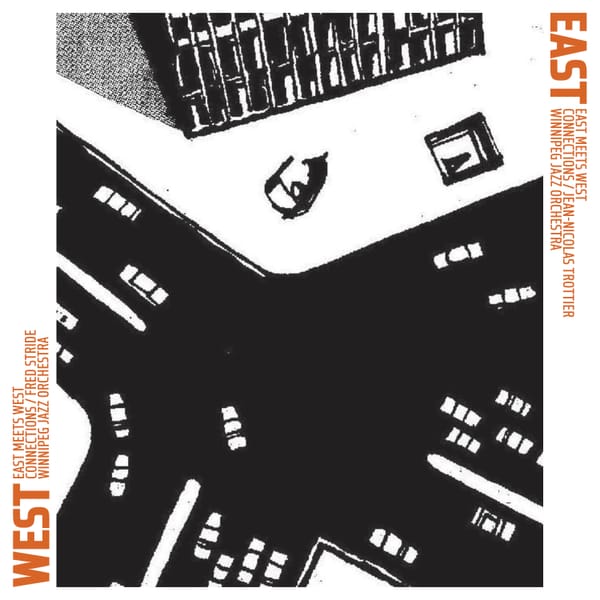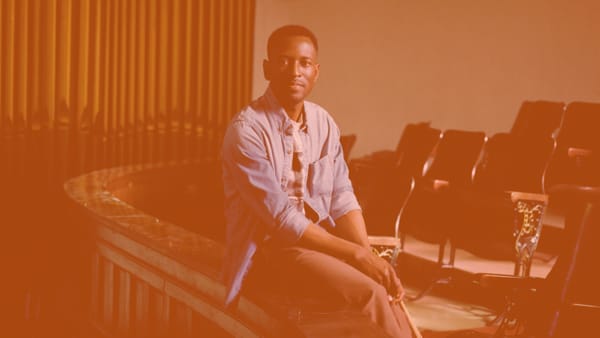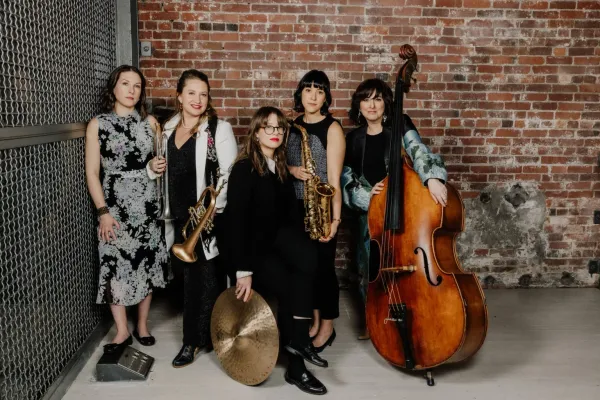Harry Bartlett taught me something about Charlie Haden
Review by Chris Fraser of BC/Toronto guitarist Bartlett's second trio album, Wildwood
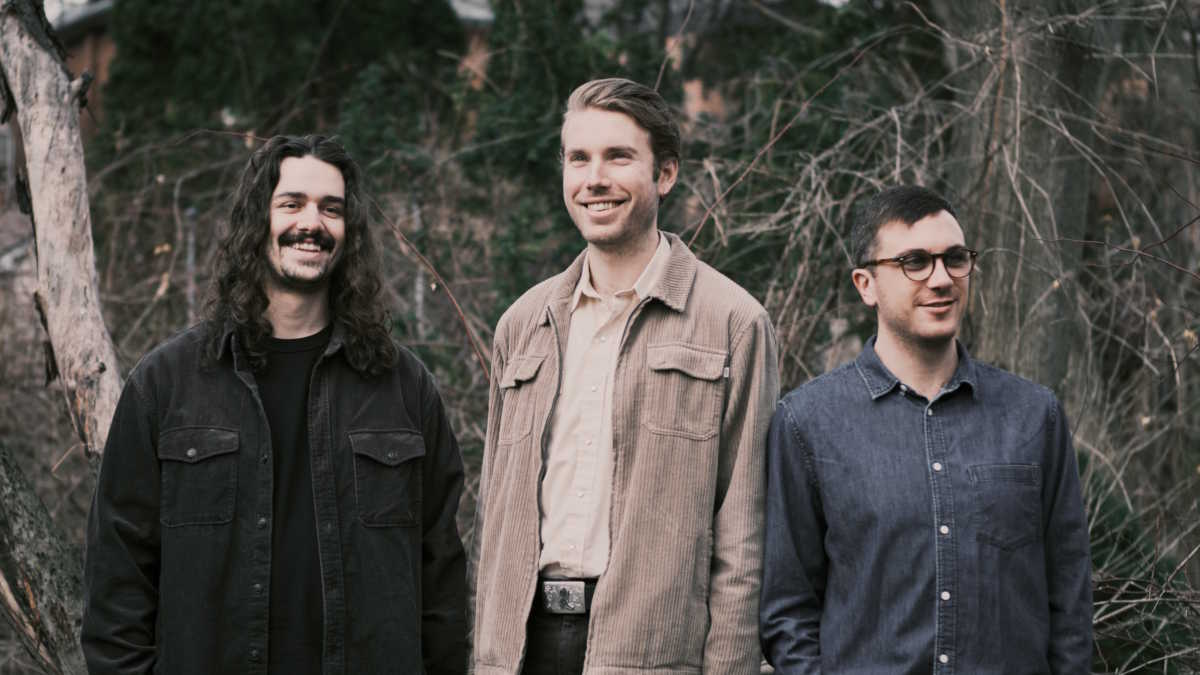
During my first year studying at Capilano University, the legendary bassist Charlie Haden visited our funny little school on the hill for what is now known among those in attendance as a rather infamous lunchtime masterclass. The room was packed with not only students, but every professor, part-time instructor, some alumni, and probably a few dozen local Vancouver jazz heavy-hitters just to see this man speak (and possibly play the bass). I won’t go into detail about what it was that made this particular visit so “infamous”, but needless to say, it was a big moment in the scene.
It pains me to say it today, but I remember being bored.
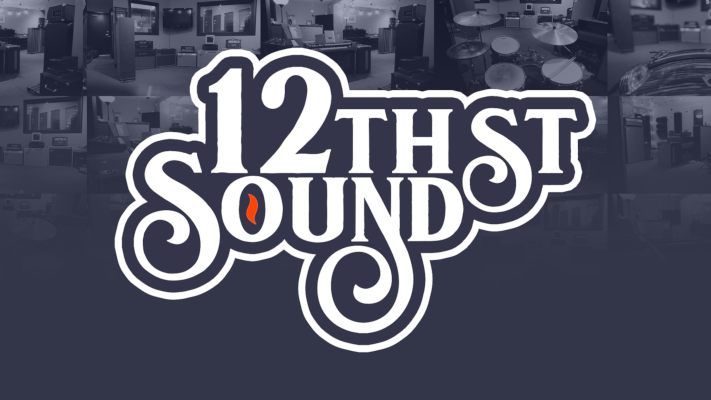
Thank you to 12TH ST Sound for sponsoring this free weekly article. New clients get 10% off from this recording studio in New Westminster at 12thst.ca/rcp.
At 18 years old, I hardly knew who Charlie Parker was, let alone Charlie Haden. He spent a whole lot of time at the beginning choosing whose bass to use for the presentation, only to hardly play it at all for the 90+ minutes we were all crammed into that room. It was disappointing to me. Everybody had built up how great this masterclass was going to be and all the man did was talk. I spaced out for much of it (as was my way of doing things at the time) and all I can really recall was him saying some gobbledigook about “playing the mountain” – whatever that meant.
Wildwood is Toronto guitarist Harry Bartlett’s second release with his trio consisting of himself on guitar, Harry Vetro on drums, and Caleb Klager on bass. I reviewed Harry’s first release with this group, Harry Bartlett Trio, in 2018, so I am excited to revisit the group and see how they have grown together.
This record consists of nine tracks, all but two clocking in at fewer than 6 minutes of playtime. The first track “Burgess Falls” is a slow-moving, dramatic dirge whose melody evokes the feeling of watching a spaghetti western. Dark and looming, no-nonsense, but verging on camp. The mood of this track combined with it being named after the feature of a Tennessee state park is undoubtedly Bartlett’s signal to us that he is an acolyte of the Frisell school of Americana-slanted jazz guitar trio.
“Circle of Moss and Fire Smoke” is the type of track on this record that I would refer to as something akin to a vignette: a track that is less than two minutes long and serves to showcase a short but effective composition, just to get you to feel something, if only for a moment. Other such tracks include “Sailing over Troubled Waters”, a 47-second cacophonous group improvisation, and “Jellybean”, a charming groove with a sweet melody.
I almost counted “The Incident at Blood Bay” as another vignette, but I think it goes a little bit deeper than the others, despite it being very stripped-down in arrangement. There’s clearly a story being told here, given the title. And the theme itself is almost Elfman-esque in style. Bartlett also takes a solo here, which gives it extra points in my book.
Where “Burgess Falls” acted as a nod to Bill Frisell’s style, “Snowfall on Sword Ferns” proves Bartlett’s devotion to Pat Metheny’s compositional and sonic approach: he uses a nylon string guitar as well as more non-functional harmony than is used in most of the other tracks. With Klager switching to electric bass, we get a more driving Bright Size Life-type sound here. There’s also a stronger connection to the straight-ahead jazz tradition on this track, as both Bartlett and Klager take extended solos with Bartlett briefly showing off some bebop chops. My favorite thing about the electric bass in a jazz context is that the rhythm section can actually build in dynamic during the bass solo, which is achieved tastefully here.
“Story Book Picture” is a gentle but cerebral, Metheny-like composition that features the nylon string guitar. The outro of this track metamorphoses into a sort of Afro-Cuban / prog-rock hybrid that provides a jolt of new energy three-quarters of the way through the runtime. I know that prog-rock is often used to describe guitar and bass playing in unison, but don’t blame me for that. Blame the band Yes.
The Queen of Surrey is a double-ended C-class roll-on/roll-off ferry in the BC Ferries fleet. However, it also happens to be the name of the eighth track – and the clear apex of this record.
The nine-minute track starts off with a hypnotic swing figure under the most singable melody on the album. All three members take a solo on this track, and they’re all playing at their best here. I was especially happy to hear more from Vetro on this one; whereas Bartlett is the fearless and level-headed leader with a clear concept in mind, Vetro is the trio’s emotional engine, pushing both Bartlett and Klager to dig deep during their improvisations, like the best drummers do.
After the epic emotional highs of “Queen of Surrey”, the final track “Lachesism” is the album’s eerie and somewhat unsettling epilogue. With the rest of the album before it having this grounded and organic kind of feel, “Lachesism” is almost alien as it’s more of a soundscape than a standard tune, and I love it for that. It’s a wall of sound created by a guitarist and a fancy reverb pedal, juxtaposed against the painstakingly rehearsed melodies and arrangements preceding it. I don’t know what the word lasechism means, but the sound of this track reminds me of a dream fading from your memory in real time in the seconds after you wake up. I would listen to an entire album of tracks like this.
Of course, later on, I learned about who Charlie Haden was. He died only a few years after that fateful day up on the hill. Of course, I realized how important he was to this craft. How there’s a chance I wouldn’t have even stepped into that funny little school at all if it weren’t for his massive influence.
I learned that Charlie Haden was a big-picture guy. To me, it seems all of his contributions were done with intention, no matter how obscure or abstract. Throughout his career, he helped to popularize both the free jazz movement as well as the revival of Americana in jazz circles.
Clearly, Haden’s influence is all over this project. Much like Charlie Haden, Bartlett presents Wildwood with intention. Every track serves a purpose, evokes a feeling, or tells a story: it’s cinematic (you may have noticed my use of film jargon to describe much of this record.)
Bartlett is more than a guitarist, or even a composer: he’s a director. In film, it’s not enough to have good ideas; the director must put great care into presenting the idea in a way that will resonate with the audience. This level of intent is present in this record, however I feel music can be more forgiving than film in this regard. The key role of improvisation on many tracks allows the director to loosen his grip, allowing the gods to come and act out the scene uninhibited. In this case, the rugged wilds of Gambier Island – where the music was composed and recorded – permeate this record. The overwhelming smell of salt and smoke, the too-clear-to-be-real air stinging your face when you step out onto the passenger deck of the Queen of Surrey – they’re acting out these scenes.
I finally get what old Charlie Haden was talking about, all those years ago. He was admiring our landscape, as most visitors do. As a lifelong Vancouverite, it’s easy for me to take the mountains for granted, but every time I go away from here, I quickly remember how breathtaking they are. When Charlie said “play the mountain”, what he meant was: be present. Let your place in this world exist in your art. And on Wildwood, the Harry Bartlett Trio does just that.

Wildwood: Burgess Falls; Circle of Moss and Fire Smoke; Snowfall on Sword Ferns; The Incident at Blood Bay; Sailing Over Troubled Waters; Story Book Picture; Jellybean; Queen of Surrey; Lachesism. (35:46)
Personnel: Harry Bartlett on guitar; Caleb Klager on bass; Harry Vetro on drums.

